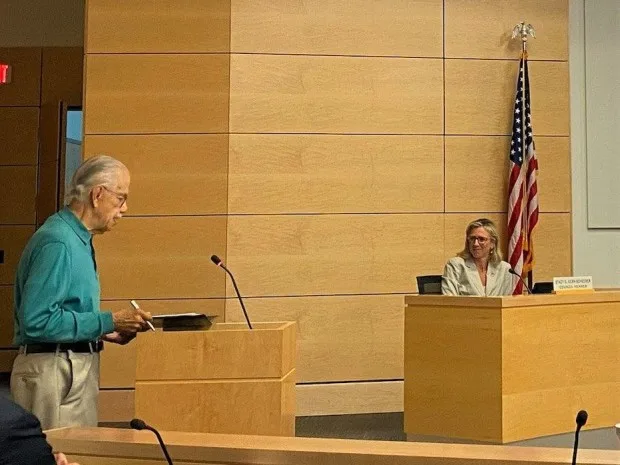WILLIAMSBURG — Williamsburg is taking the next step toward reconciling with its racial history.
After two years of research and interviews to study the impact of racism and racial injustice on Williamsburg residents, members of the Truth and Reconciliation Committee presented their findings to the City Council at Monday’s work session.
“The TRC members have volunteered their time and put in a lot of hours,” committee Chair Bobby Braxton said. “Every member of the TRC believes that the first step in implementing the truth and reconciliation process is truth; telling and acknowledging the truth about how racism continues to cause harm.”
The committee “approached the report with the understanding that truth can hurt, truth can be complicated, but truth-telling is the necessary soil for healing and reconciliation to take root and to blossom,” committee member Laura D. Hill said.
The committee interviewed Williamsburg residents and members of the descendant community.
“Themes began to emerge,” said Hill, founder and director of Coming to the Table-Historic Triangle. “We heard story after story of displacement of African American communities resulting in destruction of families and businesses, destruction of opportunities to create and maintain multigenerational wealth and the destruction of communities.”
Other points brought up in interviews were the lack of affordable housing, the under-representation of Black people in leadership and barriers to accessing health care and community resources, Hill said.
The committee came up with five recommendations, with the goal “to help Williamsburg heal and work well for all of its residents,” the report reads.
One recommendation includes modernizing the Historic Triangle area “as a vibrant epicenter for thriving Black tourism, community, culture and economy.” Some suggestions provided by the committee include considering grants, subsidies and tax incentives to bring in Black-owned businesses as well as coming up with tax-advantaged opportunities to invest in development of the greater Triangle area as a center of Black tourism, community, housing, culture and economy.

Other recommendations mentioned are establishing a standing Truth and Reconciliation committee; fostering a welcoming community within the city’s leadership and workforce; focusing on mental health initiatives and efforts; and conducting an in-depth study to look at and find solutions for race-based discrimination, actions, impacts and effects in a number of areas such as housing, education, health care and business.
“The Truth and Reconciliation Committee is extraordinarily grateful to people who allowed us to interview them,” Braxton said. “These community members courageously shared their stories, revisited often painful experiences and offered a hopeful vision for how Williamsburg can confront the corrosive legacy of racism, remedy harms and build a better community for all.”
The city’s Goals, Initiatives and Objectives for 2023-24, a biennial document that identifies the city’s priorities, includes an item about the Truth and Reconciliation Committee. The goal is to pursue two of the recommendations that can be accomplished in the immediate term.
After the presentation, Mayor Doug Pons echoed Hill: “This is not a sprint; this is a marathon. Race will never be over. We’ve got to keep running, keep working and keep having conversations. Keep being truthful.
“I’d like to think this city … (is) committed to making sure that people are treated equally and fairly, every day of their life,” Pons said. “That’s who we are. That’s the One Williamsburg that I think we all want to be a part of.”
Sian Wilkerson, 757-342-6616, sian.wilkerson@pilotonline.com

